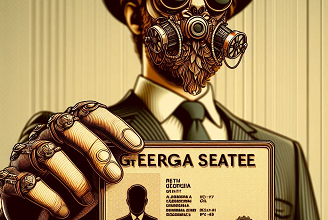“Doctor, I trust you. But what if I refuse treatment? What if my cultural beliefs clash with your medical advice? And what if, heaven forbid, a life-threatening mistake occurs?” These are the intricate threads that weave the fabric of health care ethics. In the bustling corridors of hospitals, clinics, and research labs, health care practitioners grapple with these dilemmas daily. Their decisions, guided by both law and ethics, have profound implications for patients, families, and society at large.
What Is Ethics in Healthcare?
At its core, ethics in healthcare is the North Star that guides the work of professionals in the industry. It’s the moral compass that ensures practitioners treat their patients with dignity, respect, and compassion. But it’s more than that. It’s the unwritten contract that binds health care providers to their sacred duty: to heal, to alleviate suffering, and to safeguard lives.
The Ancient Oath and Modern Principles
The roots of healthcare ethics trace back to ancient Greece, where the Hippocratic oath was born. Physicians pledged to uphold their patients’ well-being, to do no harm, and to maintain confidentiality. Fast-forward to today, and these principles remain steadfast. Let’s explore some of the core ethical tenets that shape health care:
- Beneficence: This principle demands that health care practitioners act in their patients’ best interests. It’s about improving well-being, relieving pain, and promoting health. Imagine a doctor weighing the pros and cons of a treatment, considering not just medical outcomes but also the patient’s unique context—background, beliefs, and experiences. Beneficence is the heartbeat of ethical decision-making.
- Nonmaleficence: First, do no harm. Healthcare professionals must avoid causing harm to their patients. It’s a delicate balance—weighing the risks of a procedure against the potential benefits. Think of a surgeon meticulously planning a complex surgery, minimizing risks while maximizing chances of success.
- Autonomy: Patients have the right to make decisions about their own bodies. Autonomy means respecting their wishes—even when those wishes diverge from medical advice. Picture a nurse patiently explaining treatment options to a cancer patient, empowering them to choose the path that aligns with their values.
- Justice: Fairness and equity are the cornerstones of justice. It’s about allocating resources wisely, ensuring equal access to care, and advocating for vulnerable populations. Consider a hospital administrator grappling with limited ICU beds during a pandemic—how do they decide who gets that precious spot?
Navigating Real-World Dilemmas
Let’s step into the shoes of healthcare practitioners facing ethical crossroads:
- The Refusal of Treatment: Mrs. Johnson, a vibrant 80-year-old, refuses chemotherapy for her aggressive cancer. She values quality of life over quantity. The oncologist respects her autonomy, even though it tugs at their medical instincts.
- Cultural Clash: Ahmed, a devout Muslim, needs a heart transplant. But his faith prohibits organ transplantation. The cardiologist engages in deep conversations with Ahmed and his imam, seeking a solution that honors both medical science and religious beliefs.
- The Dreaded Mistake: Dr. Rodriguez administers the wrong medication to a critically ill patient. Panic sets in. But Dr. Rodriguez follows protocol—discloses the error, apologizes, and initiates corrective measures. The patient’s life hangs in the balance.
Why Law Matters
Ethics dances hand in hand with healthcare law. While ethics speaks of what we ought to do, law defines what we must do. Legal frameworks protect patients, guide practitioners, and ensure accountability. Here’s why law matters:
- Informed Consent: Before any procedure, patients must understand the risks, benefits, and alternatives. The law mandates informed consent—a pact between doctor and patient. Imagine a surgeon explaining the intricacies of brain surgery to a nervous family.
- Confidentiality: The law guards patient confidentiality. Medical records are vaults of trust. When a nurse whispers comforting words to a frightened child, she knows the law stands guard.
- End-of-Life Decisions: Advance directives, living wills, and durable power of attorney—these legal tools empower patients to shape their destiny even when they can’t speak. Hospice nurses honor these wishes, ensuring dignity in life’s final moments.
The Symphony of Care
In the bustling ER, the quiet hospice room, and the research lab, health care practitioners wield their dual swords: ethics and law. They navigate stormy seas, seeking safe harbors for their patients. For every life saved, for every tear wiped, they embody the essence of healthcare—the delicate balance of science, compassion, and humanity.






